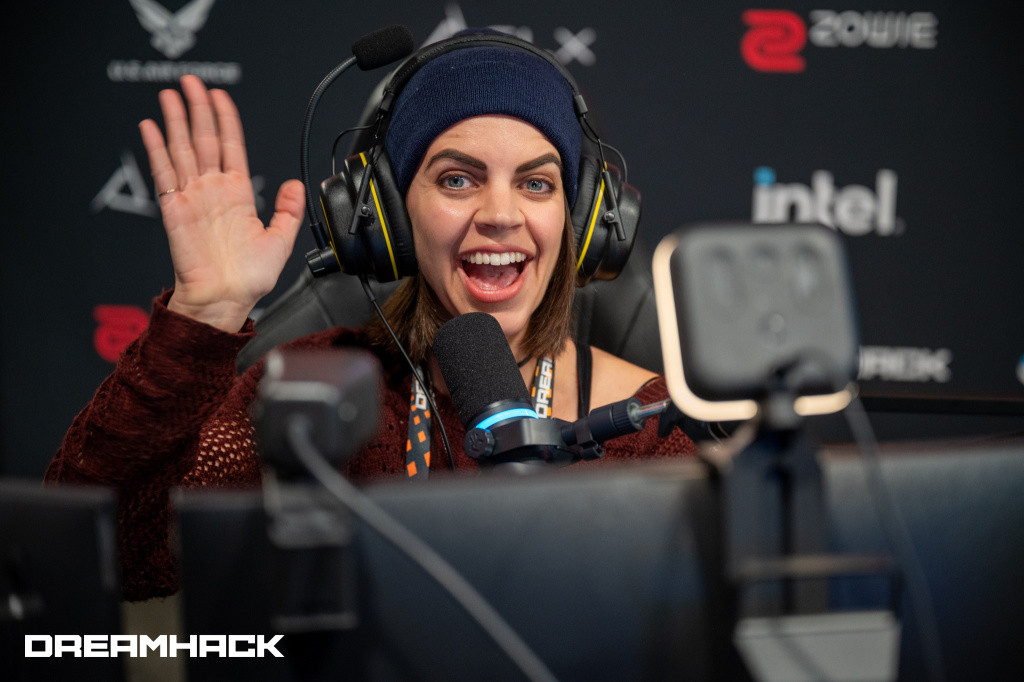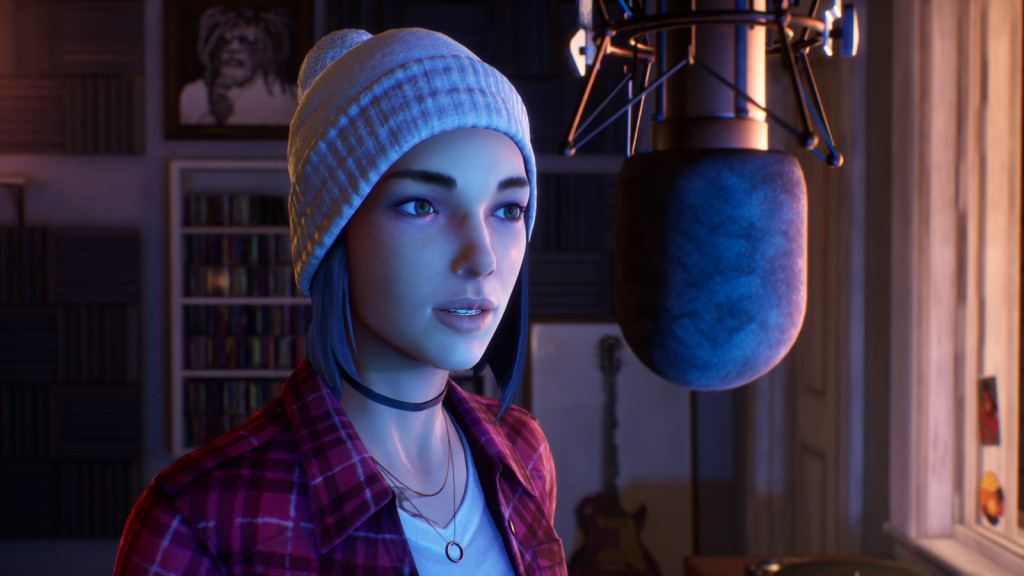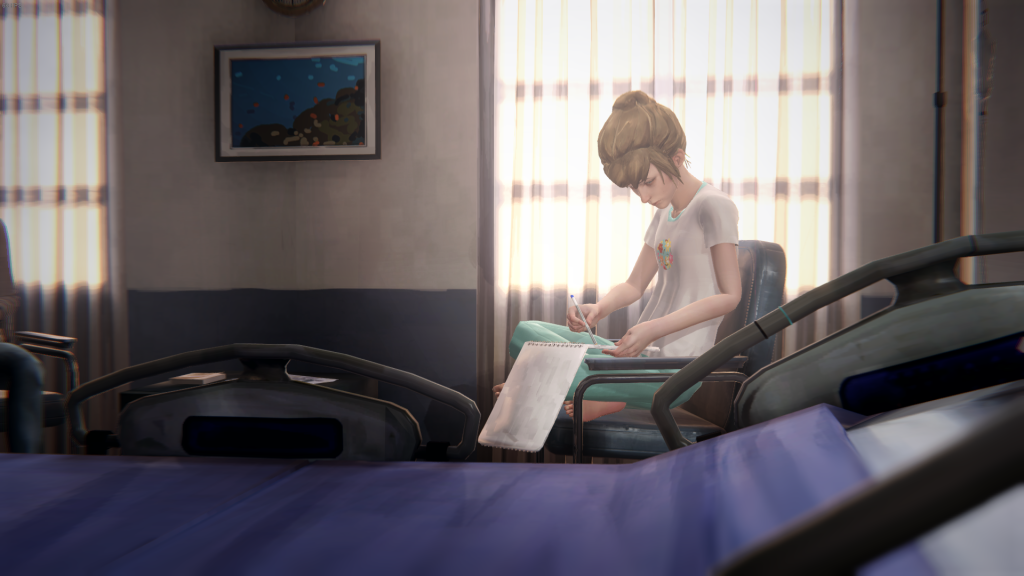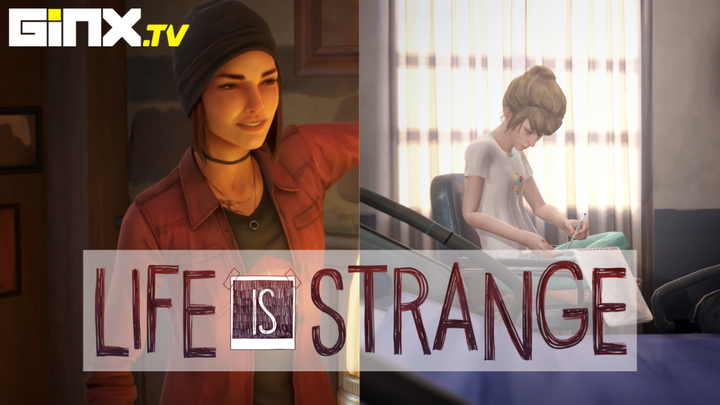Life is Strange: True Colors and its DLC came out in 2021 after the widespread success of Life is Strange, Life is Strange 2, and Life is Strange: Before the Storm. When the series started out, no one anticipated that it would grow into what it is today: a widely acclaimed series with an enormous community. Part of that community are the game's voice actors themselves, who bring the game's characters to life with their true-to-life performances.
Voice actors Dayeanne Hutton (Kate Marsh) and Katy Bentz (Steph Gingrich) chatted with us at DreamHack Atlanta about what it was like to play their respective Life is Strange characters, and a few behind-the-scenes tidbits.

Q: What is your favorite part of any of the Life is Strange games — not necessarily one that you've played in or a part that you've played?
Dayeanne Hutton: It’s great that [Katy and I] are together because I actually love playing DND with Steph. After Life is Strange came out, people would ask if I’ve played the game yet, and the answer is “yes, and my favorite part is DND!” Sure, there’s an emotional story and stuff… but let me play that tabletop game!
Katy Bentz: I think for me, I just like that each game is different in the fact that whoever's playing it can relate to a different character. That's what's really good about the franchise. That maybe you can connect with the original game, but you connected with Life is Strange 2 and their stories and the relationship with the brothers. Or maybe you connected with Alex and her relationship with emotions. I think that's what's really cool about the franchise — there's something for somebody to connect with.
Q: Speaking of emotional moments, which Life is Strange is definitely full of, what is it like getting into the role with those more emotional moments and scenes?
Dayeanne: I've answered this question and I always feel like I’m disappointing people with the answer. As Katy can attest to, with voice-over, you don’t get prep time. You don’t know what’s happening until you walk into the room. I literally walked in the room and was told, “Oh, hey, your character is attempting to jump off a roof today.” And it’s like, “Oh, good morning! Okay!”
I’m a trained actor — I’ve been in theater my whole life — so I tap into places where I’ve been sad. Have I been at that point where Kate was at on that roof? No, but I’ve been really sad and I’ve felt lonely before. So you have to really be able to tap into those emotions.
I was really lucky because Hannah Telle [Max Caulfield's voice actor] was recording in the room with me, which is very rare when you’re not doing [motion capture], so we were able to emote with each other and feed off each other’s emotions in that moment, which was a really beautiful thing.
Katy: For me, as Steph, I'm able to just feel sadness and just kind of touch into that quickly and just be in that moment — you know, just kind of live there. Then I can quickly snap out of it. I'm grateful that I can do that because sitting in those emotions can be traumatizing, and you see it for a lot of actors in different roles. But, yes, I just have to dial in and feel the sadness and that's helped me get there in those moments.
Dayeanne: As important as it is to get into those emotions, it’s important to be able to get yourself out.
Katy: It’s very important. I think [we’ve both] seen people get stuck on set, and it’s not good.
As important as it is to get into those emotions, it’s important to be able to get yourself out.

Q: It’s amazing to hear that you learn what you’re going to do right before you perform — you’re so talented!
Dayeanne: Thank you!
Katy: For Life is Strange OG to Before the Storm, they were all voice over and the mo cap was done separately. But for True Colors, the mo cap was full performance capture. So, we got to get those scripts, I think a week or maybe a couple days in advance. Something like that. That was nice to have, and, of course, it's more like a scene so it's more like they’re shooting a TV show in a sense, doing multiple scenes at a time. You need to make sure you’re ready and have all your lines memorized. I would just memorize all my lines in the hotel the night before, and block everything in my brain, then get on the set and be ready to have them block it out. It’s definitely nicer, and I think any actor can attest to that, to have the scenes ahead of time.
I always tell people, too — and maybe this was the same thing for [Dayeanne] — about when I had my first Steph line in the booth. I didn’t have any of the scripts beforehand, so it's like I'm reading this line for the first time. I’m like, "Okay, well, I have this idea of what Steph sounds like,” and I say it. Then they’re like, “OK, moving on!” and I'm like, “Oh my gosh, that’s Steph’s voice! Okay! I guess that’s it!”
Dayeanne: That’s why voiceover directors are so important, too. They do know, and they do have scripts ahead of time. They do know where things are going. Not only do you not get [your lines] until the day of, you literally get lines, like on an Excel sheet, and maybe an emotion like “she’s upset right now.” You really have to trust the director that if you said it, and it wasn’t good, they wouldn’t have moved on. You really have to have that trust, and I feel like voiceover directors need more love. It’s a collaboration for sure.
Q: Were you allowed to do any improvising, or was it completely sticking to the script?
Katy: For me, it was sticking to the script, especially with the performance capture. Unless something didn’t flow right. There were writers with us on the mo cap stage, so that we could be like, “Hey, this isn't working, can we change this? And as long as they okay'ed it and as long as it wasn’t already animated, we could work with that and change some things. But for the most part, they wanted it word-for-word. They had a script supervisor making sure that everything was word-for-word, if it wasn't, we had to go back and make sure it was. They’d say, “Hey, you missed this word,” or, “you dropped this letter.” That happened to me sometimes, so it was important to stick to the script for that.
Dayeanne: We had one of the writers on a Zoom call while we were in session, and same thing — if something wasn’t working, he’d go into a document and type out a line for me to say. With voiceover, a lot of times, the improv comes with sounds instead of words. Adding a breath, adding a stutter, adding a sigh or something like that. That’s kind of where the improv lies in, because it can be really important to stick to the words exactly.

She is that representation again of somebody who’s strong, and was confident in herself as a nerd, as a queer woman, as a lover - she’s just confident and that’s beautiful.
To wrap things up, what is your favorite part of playing your individual characters?
Dayeanne: I feel like Kate’s heart is just so pure. I have joked before that Hannah Telle, who is the voice of Max, is actually more like Kate in real life, and I’m more like Max in real life. I love Kate; I would say her resilience, but depending on how you play the game, it might not go that way! But, in my headcanon, her ability to come out of a dark place, and that strength, is really beautiful.
Katy: I think, for Steph, it’s just the fact that as you play her story, you get to learn a little more about her and her struggles. She struggles. But when you first see her on the outside, she’s like a rock. She has it all together. Had they not carried on with her story, that would’ve been what you saw. The fact that she is that representation again of somebody who’s strong, and was confident in herself as a nerd, as a queer woman, as a lover — she’s just confident and that’s beautiful. If you carry on with her story, you see that she does go through a lot of dark turns and places to get to that confidence.
Both Hutton and Benz also stream on Twitch, where they each have their own communities and stream games. You can check out Benz' channel here, and Hutton's here.

 No ads, our video library,
No ads, our video library,

